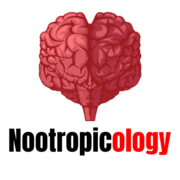Feedamind Review 2024: Benefits, Side Effects & Where To Buy
In this Feedamind review, I'll be looking at what Feedamind is, how it works, and what it's used for. I'll review the benefits, the perfect dosage, and what side effects you may have. Lastly, I'll share my own experience with it and where you can buy Feedamind online.
Are you looking to unleash the full potential of your mind and improve cognitive function?
In this review, I will take a closer look at the scientific research on this breakthrough nootropic supplement, to determine whether it lives up to its hype.
Based on extensive research and critical analysis, this review will help you decide whether is the right nootropic for you.
So, let’s dive in and discover the key to unlocking your highest potential with Feedamind.
What Is Feedamind?
Feedamind is a cutting-edge nootropic blend scientifically formulated by biotechnologists to enhance brain function, including faster focus, increased concentration, and rapid recall.
It contains a potent blend of 16 all-natural ingredients, each carefully selected for its brain-boosting properties. Feedamind offers an unrivaled mental performance-boosting experience for everyone - from college students to medical professionals, business execs to athletes, financial traders to gamers.
| Product | FEEDAMIND |
|---|---|
| Product Type | Nootropic Blend |
| Manufacturer | Karobra Ltd |
| Effects | Supports overall brain function and improves cognitive performance |
| Side Effects | Headaches and drowsiness |
| Dosage | 3 capsules daily |
| Content | 90 capsules |
| Price pr. Bottle | $72.99 USD |
| Money-Back Guarantee | - |
All of these individuals can benefit from enhanced cognitive capabilities and peak mental performance with the help of Feedamind. So, if you're searching for a nootropic blend for enhancing cognitive functions, Feedamind will provide an unmatched level of focus, allowing you to concentrate on any task at hand undeterred.
With a rich blend of natural ingredients, this cognitive enhancer will surely provide you with an exceptional cognitive experience. And the great thing about this natural brain booster is that it doesn't contain harsh stimulants.
How Does Feedamind Work?
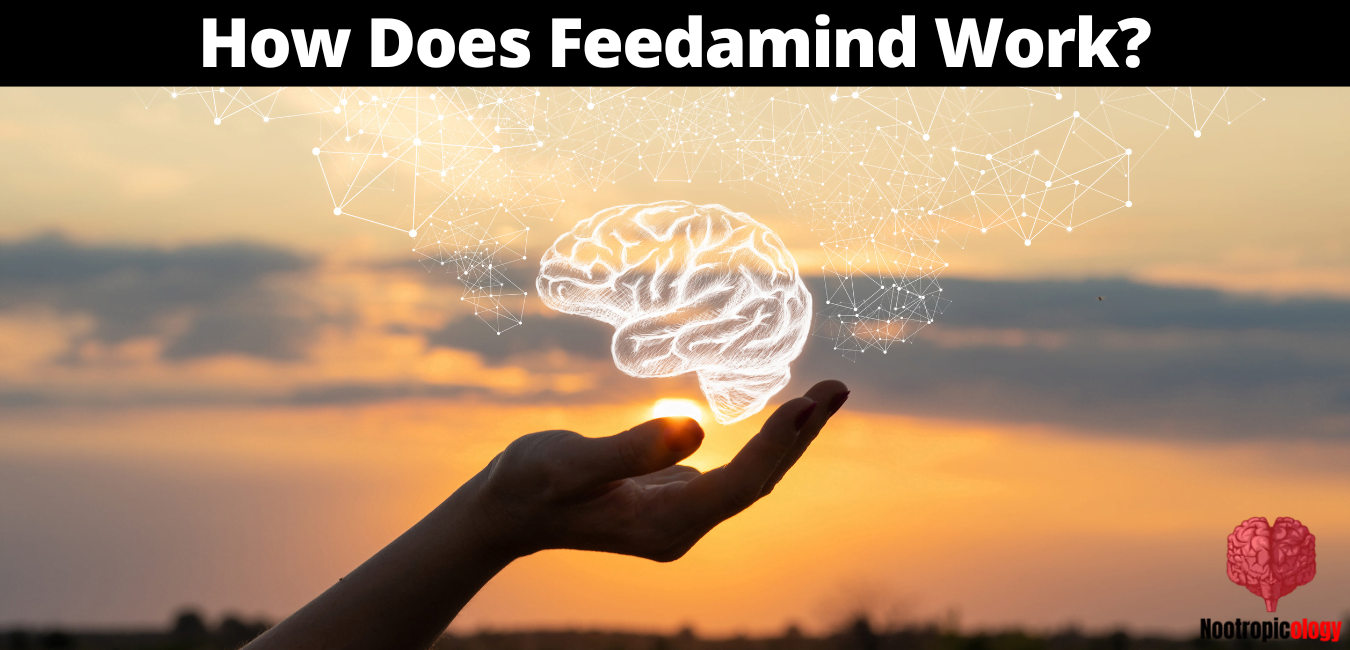

Feedamind is an all-natural brain supplement that is formulated to enhance cognitive performance and optimize brain function. The supplement is designed to help you perform at your peak by boosting your focus, improving your memory, and enhancing your hand-eye coordination.
The supplement is formulated with a range of natural ingredients that have been shown to promote cognitive function and enhance overall brain health.
These natural nootropic ingredients work synergistically, meaning that when combined, they are more effective than when used alone.
So not only do you get the benefit of each individual ingredient, but also the combined effect of all ingredients together.
The primary mechanism of Feedamind is the stimulation of brain activity via the promotion of blood flow and the delivery of vital nutrients to the brain.
This supplement is formulated with powerful ingredients such as L-Tyrosine, Bacopa Monnieri, and Alpha-GPC that work together to optimize brain performance.
Through increased blood flow and oxygen delivery to the brain, these components promote neuron development while also maintaining their health.
I will talk more about each ingredient in-depth later on in this review. The main thing to remember is that Feedamind works by stimulating neuronal activity and improving brain health.
How Long Does It Take For Feedamind to Work?
Feedamind is a fast-acting nootropic with effects that start to kick in almost immediately. Most users will experience enhanced focus and clarity after taking the supplement for just a few days.
The more frequently you take this supplement, the more pronounced the effects become. With regular supplementation, many users report measurable improvements in cognitive performance within a few weeks.
For long-term improvements, it is advised to take this supplement on a daily basis over the course of several months. This ensures that your brain receives the sustained benefits of its natural ingredients and your cognitive performance continues to improve over time.
This is due in part to its inclusion of adaptogens such as Bacopa Monnieri. Adaptogens can take a few weeks before they start working, but the results are truly remarkable when taken consistently for several months.
What Is Feedamind Used For?
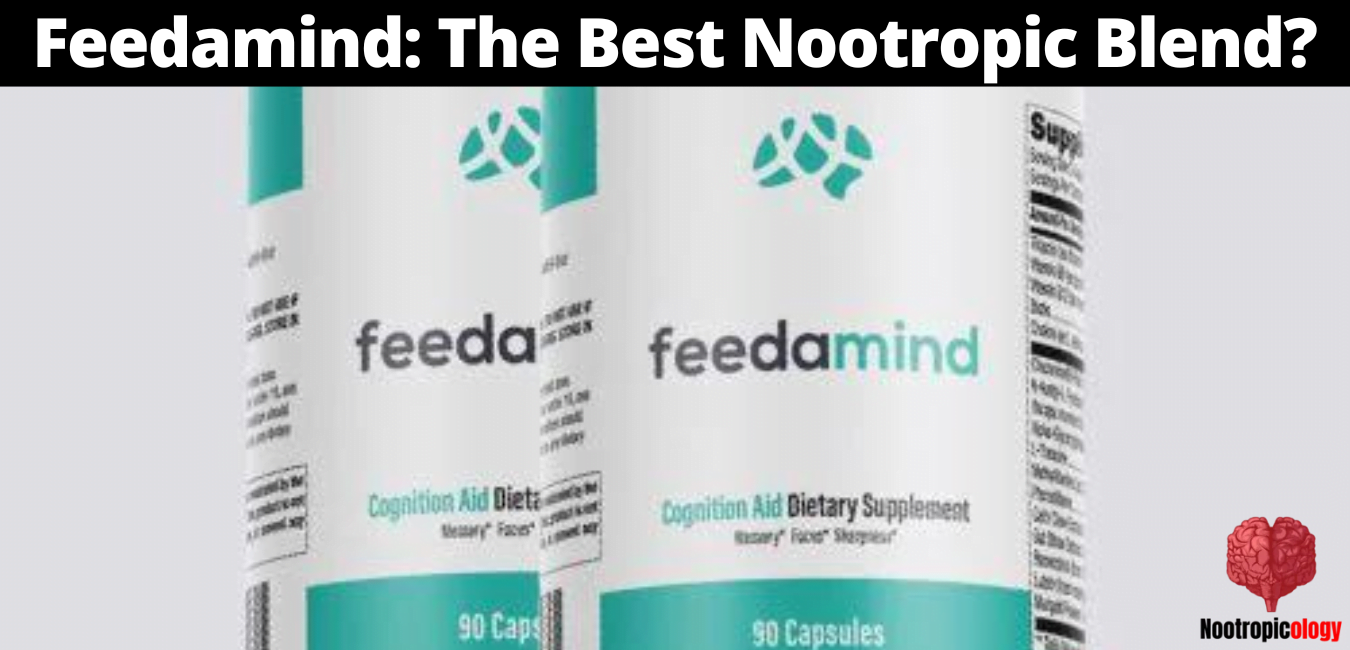

Feedamind is used for a variety of cognitive-related purposes. Its primary purpose is to enhance focus and concentration so that users can perform better at work, school, or any other mentally challenging task.
It can also improve memory and recall, allowing users to remember information more quickly and accurately. This can be especially beneficial for students looking to ace their exams or professionals looking to stay ahead of the competition.
The supplement can also help multitask, allowing users to juggle multiple tasks simultaneously with increased efficiency. Lastly, Feedamind can help reduce mental fatigue and stress, making staying motivated throughout the day easier.
What Are the Benefits of Feedamind?
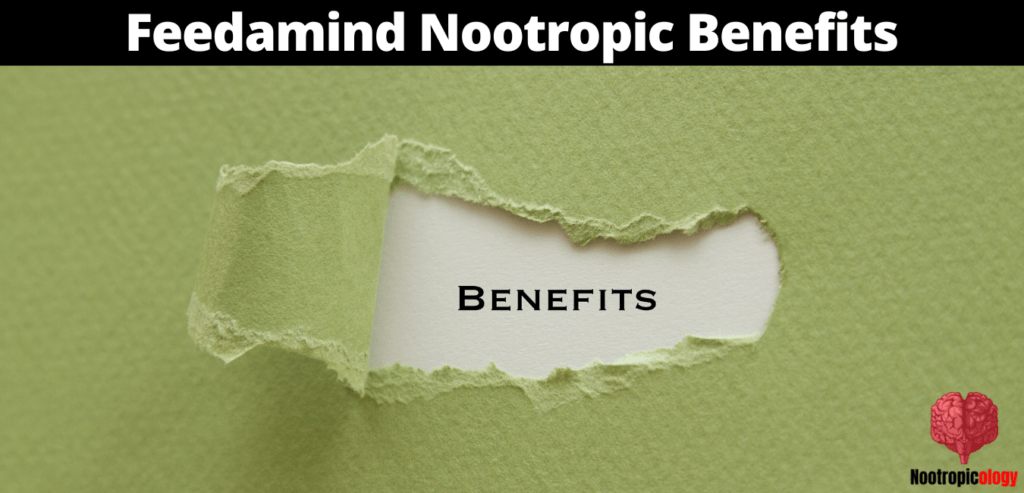

The benefits of Feedamind are numerous. First and foremost, it can help enhance cognitive performance by boosting focus, concentration, memory, and recall.
It can also improve hand-eye coordination, allowing users to react faster and remain more alert when needed. Additionally, this supplement is known to reduce mental fatigue while simultaneously promoting relaxation.
Users also report experiencing reduced stress and improved mood after taking Feedamind. The natural ingredients in this supplement are known to improve overall brain health by promoting neuron development and providing vital nutrients to the brain.
To give an overview, here are some of the most notable benefits of taking Feedamind:
- Improved focus and concentration
- Enhanced memory and recall
- Reduced mental fatigue
- Improved hand-eye coordination
- Reduced stress and improved mood
- Promotes neuron development and brain health
- Improved overall cognitive performance
Feedamind Reviews & Experiences Reported On Reddit
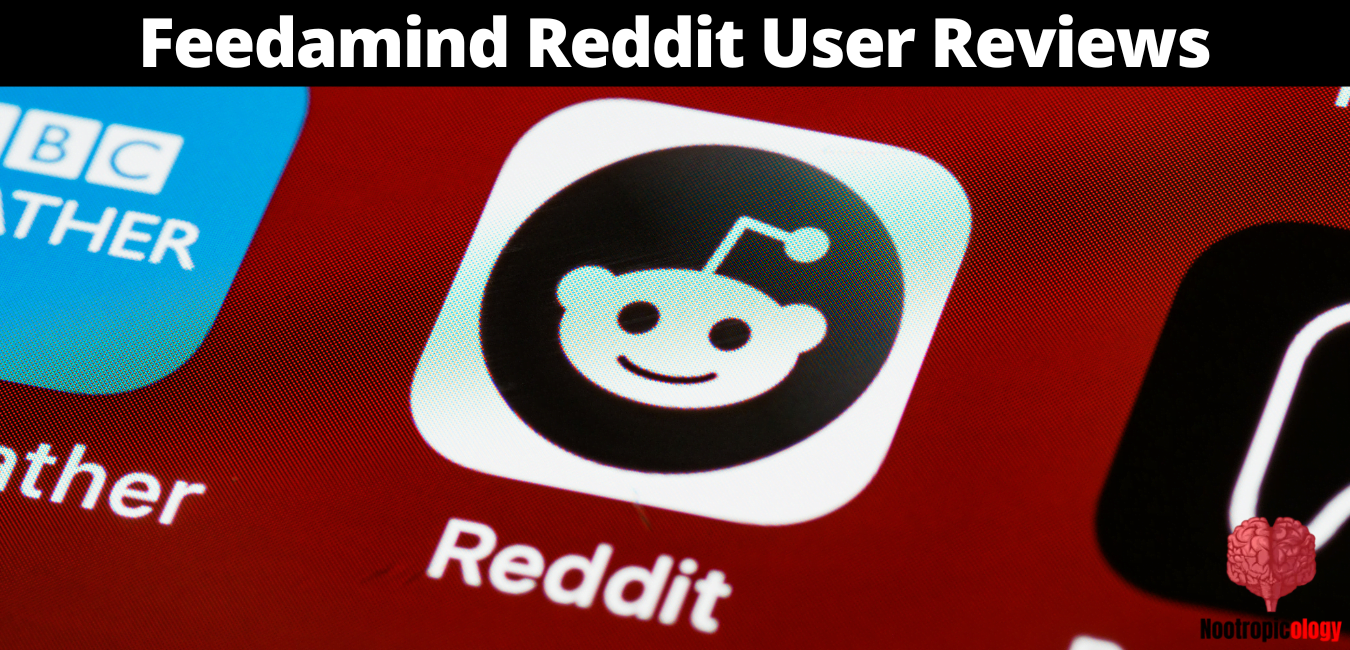

Let's take a look at some of the reviews and experiences reported by users on Reddit.
According to im1234coming:
"Feedamind is an amazing nootropic. I'm seeing results in terms of focus and concentration within a few days of taking it. It's helping me stay motivated throughout the day and my mental clarity has improved significantly."
Another user by the name of jayjay5150 wrote:
"I've been taking Feedamind for a few weeks now and I'm noticing some amazing benefits. My mood has improved and my cognitive performance is better than ever. Highly recommend!"
And finally, user sudoku_dad said:
"Feedamind is great for multitasking and making sure I'm working at my peak. The mental clarity I get from this supplement is second to none."
Overall, Feedamind seems to be a hit with users on Reddit. Most people have reported positive experiences with the supplement and are pleased with its cognitive benefits.
My Personal Feedamind Experience & Results


(Had to blur out my address)
So after reading the reviews on Reddit, I figured I would put Feedamind to the test.
I went to their official website and purchased a month's supply for $72.99 USD. Not the cheapest nootropic out there, but the reviews were so good that I decided it was worth a shot.
The shipping was a bit slow, taking about 10 days for delivery, but once I received the product, I was ready to give it a try.
Week 1 on Feedamind - Something is Definitely Cookin'
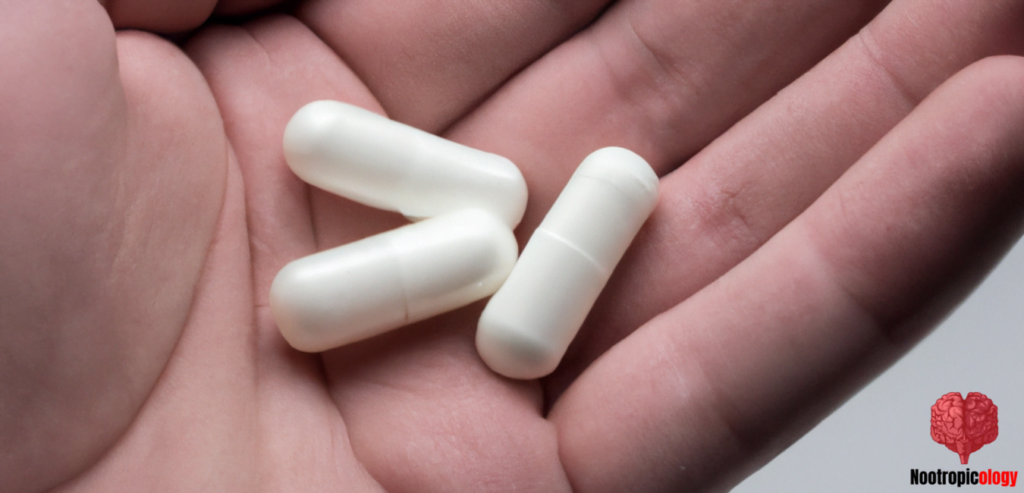

I know 7 days is not a lot of time, but I immediately noticed a difference in my mental clarity. Not only did I feel more focused and alert, but my memory was also improving rapidly. I felt like I could recall information better than before, and overall, I just felt sharper mentally.
Now, keep in mind I have zero clue if this is placebo or not, but I genuinely feel like Feedamind is working at this point.
Week 2 on Feedamind - Mental Performance at Its Best
The second week was even better than the first. Not only did I feel more mentally sharp, but my focus and concentration were through the roof. I felt like I could take on any task that came my way with ease.
Additionally, my mood was also greatly improved (probably due to L-Theanine). I felt more relaxed and calm throughout the day and overall, just happier in general.
Week 3-4 on Feedamind - Overall Improvement in Cognitive Performance
By weeks 3 and 4, I was already feeling the full effects of Feedamind. My memory was now on point, my focus and concentration were great, and my overall mental clarity was better than ever before.
In addition to this, I also noticed that my hand-eye coordination had improved significantly. This was noticeable since I write for a living and could type faster and more accurately than before.
By week 4, I also noticed diminishing returns, and it seemed like the effects of Feedamind had stabilized. So, as I'm typing this, I'm contemplating whether extending my use any longer than this is worth it. I will keep you posted though!
Overall, I'm really pleased with my experience using Feedamind and would highly recommend it to anyone looking for an effective nootropic supplement. The effects may be subtle at first, but over time, you will notice a marked improvement in your cognitive performance.
What Does Feedamind Feel Like?
Feedamind makes you feel focused, alert, and mentally sharp. It's like a mild stimulant that keeps your brain running at peak performance all day long.
You don't get the jitters or energy crashes associated with conventional stimulants, but rather a smooth and sustained boost in mental power.
Where to Buy Feedamind Online?
Feedamind can only be purchased online from their official website.
It's worth pointing out that you may find it on Amazon and other online retailers, but these are likely to be counterfeit or expired products. So stick with the official website to ensure you get the genuine product and enjoy its maximum effects.
Price: How Much Does Feedamind Cost?
According to the official Feedamind website, they offer 3 different pricing plans:
- 1 Month Supply (1 Bottle) for $72.99 USD
- 2 Months Supply (2 Bottles) for $135.99 USD
- 3 Months Supply (3 Bottles) for $199.99 USD
They ship worldwide and offer fast shipping options.
Is There A Money-Back Guarantee?
As I'm typing this I couldn't find any information on their website about a money-back guarantee, so you may want to contact them directly if that's an important factor for you.
How Can I Contact the Manufacturer?
If you want to contact them directly, you can email them at support@feedamind.com or use their contact form on their website.
Is There A Discount Code Or Coupon Available?
No, there is currently no discount code or coupon available. However, if you buy the 3 months supply, you can save some money.
What Are the Feedamind Ingredients?
So, let's take a look at the ingredients of Feedamind and see what makes it so effective.
The 16 nootropic ingredients in Feedamind are:
| Feedamind Ingredients |
|---|
| Marigold Flower Extract (contains Lutein & Zeaxanthin) - 6 mg |
| Bacopa Monnieri (40% Bacosides) - 125 mg |
| Pterostilbene - 46.7 mg |
| Resveratrol - 14.3 mg |
| L-Theanine - 50 mg |
| N-Acetyl-L-Tyrosine (NALT) - 250 mg |
| L-Alpha-Glycerylphosphorylcholine (alpha-GPC) - 100 mg |
| Oat Straw Extract - 20 mg |
| Cat's Claw - 20 mg |
| Vitamin B1 - 1.1 mg |
| Vitamin B7 (Biotin) - 5 mg |
| Vitamin B12 - 100 mcg |
| Vitamin B6 - 1.5 mg |
| Chocamine® - 500 mg |
| Dynamine - 50 mg |
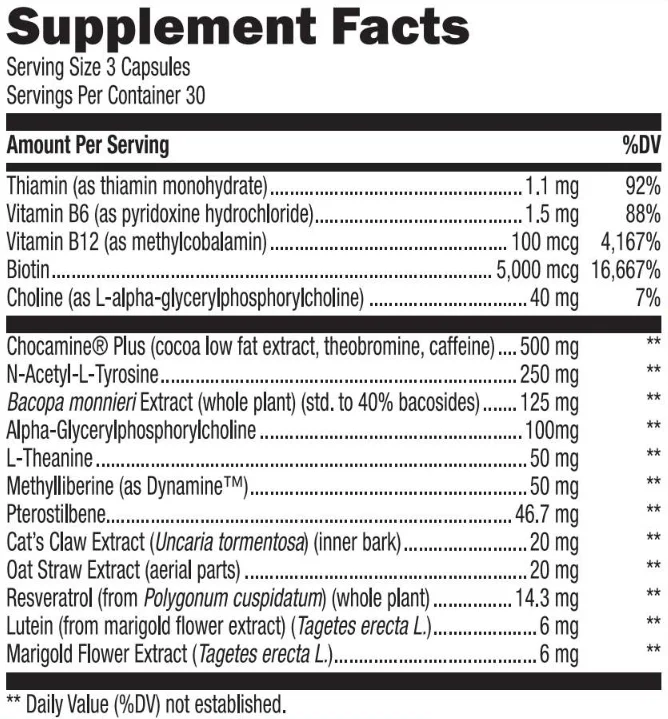

Let's look at what Science says about these ingredients:
Marigold Flower Extract (Lutein & Zeaxanthin)
Lutein and Zeaxanthin are carotenoids found in high concentrations in the macula of the eye, where they protect against oxidative damage. Research has shown that these two carotenoids can also have positive effects on cognitive function.[1]
One mechanism by which Lutein and Zeaxanthin could enhance cognitive function is through their antioxidant properties. These carotenoids are able to scavenge free radicals, which can damage cells and contribute to age-related cognitive decline.
Additionally, lutein and zeaxanthin appear to improve visual processing speed, which could have downstream benefits for other cognitive tasks.
Bacopa Monnieri
Bacopa Monnieri is a herbal extract most commonly used in Ayurvedic medicine. It has been extensively studied for its cognitive-enhancing properties, and research suggests that it can improve memory and information processing speed.[2]
Bacopa Monnieri works by increasing levels of the neurotransmitter acetylcholine (ACh), which is involved in learning and memory formation. It also appears to have antioxidant properties, which could help protect against age-related cognitive decline.
The overall evidence for Bacopa Monnieri's efficacy as a nootropic is quite strong, and it's one of the most popular ingredients in nootropic supplements.
Pterostilbene
Pterostilbene (Pt; trans-3,5-dimethoxy-4'-hydroxystilbene), a naturally occurring phenol found in both blueberries and grapevines, exhibits numerous biomedical qualities comparable to those of resveratrol. Its potent bioavailability makes it an appealing choice for various healthcare applications.
A study done on aged rats demonstrated that Pterostilbene positively affected cognitive functioning, underscoring the advantages of supplementation with Pterostilbene in relation to age-related mental deterioration.[3]
Resveratrol
Resveratrol is a polyphenol found in red wine, grapes, and other plants. It has potent antioxidant properties and helps protect against age-related cognitive decline.[4] It works by activating sirtuins, which are a class of proteins involved in cell survival and health.
L-Theanine
L-Theanine (γ-glutamylethylamide) is commonly found in green and black tea. It is an amino acid that has been shown to reduce stress, improve mood, and increase cognitive performance.[5]
N-Acetyl-L-Tyrosine
N-Acetyl-L-Tyrosine (NALT) is a form of the amino acid tyrosine. It is used to treat fatigue and stress, and it has also been shown to improve cognitive functioning in elderly people.[6]
N-Acetyl-L-Tyrosine works by increasing neurotransmitters dopamine, epinephrine, and norepinephrine levels—all of which regulate cognitive processes. NALT is thought to be more bioavailable than L-Tyrosine and may be a better choice for those looking to take advantage of its nootropic benefits.
L-Alpha-Glycerylphosphorylcholine (alpha-GPC)
Alpha-GPC is a naturally occurring cholinergic compound found in the brain, and its potential for treating certain neurological diseases such as Alzheimer's disease and other forms of dementia has been widely studied.
Furthermore, this parasympathomimetic acetylcholine precursor has shown promising results in labs worldwide that have researched it. Its nootropic potential lies in its ability to increase acetylcholine levels (ACh), which helps with memory formation, learning, and concentration. It is also known to improve mood and reduce anxiety.[7]
Oat Straw Extract
Oat straw extract, derived from the aerial parts of the oat plant, has been traditionally used in herbal medicine to promote brain health and improve cognitive function.
The plant contains various bioactive compounds, including triterpenoids, flavonoids, alkaloids, and phenolic acids, which are believed to contribute to its cognitive-enhancing effects.
Pharmacologically, oat straw extract has been shown to act as a neuroprotective agent by inhibiting oxidative stress and reducing inflammation in the brain.[8]
Cat's Claw
Cat's Claw (Uncaria tomentosa), a woody vine native to South and Central America, has been traditionally used in indigenous medicine to improve cognitive function.
This plant extract is considered a nootropic due to its ability to enhance brain function and memory. Cat's Claw contains several bioactive compounds, such as alkaloids, flavonoids, and terpenes, which are believed to act on neurotransmitter systems in the brain, including acetylcholine and dopamine.
Research on Cat's Claw has suggested that it can improve cognitive function by increasing blood flow and oxygen supply to the brain, and by reducing inflammation and oxidative stress, which can damage brain cells over time.[9]
Moreover, there is evidence to suggest that Cat’s Claw may also modulate amyloid-beta protein accumulation in the brains of transgenic mice, which are linked to Alzheimer's disease.[10]
Vitamin B1
Vitamin B1, also known as thiamine, is essential for brain health and cognitive function. It is involved in the metabolism of carbohydrates and fatty acids, which are important brain fuels.
Studies have linked low levels of thiamine to poor memory and mental performance. Supplementing with Vitamin B1 can help improve both short-term and long-term memory and overall cognitive function.[11]
Vitamin B7
Vitamin B7, also known as biotin or Vitamin H, is important for healthy nerve and brain function. It plays an essential role in the metabolism of energy-producing molecules, including fatty acids and glucose.
Studies suggest that supplementing with Vitamin B7 can help improve cognitive performance and reduce symptoms of age-related cognitive decline.[12]
Vitamin B12
Vitamin B12 is essential for healthy brain function. It helps maintain the integrity of nerve cells and is involved in synthesizing neurotransmitters, which are important for communication between neurons.
Low levels of B12 have been linked to cognitive impairment and dementia, so supplementing with Vitamin B12 can help improve memory and mental performance.[13]
Vitamin B6
Vitamin B6 is essential for biochemical reactions in the brain and plays a critical role in maintaining cognitive function. It helps synthesize serotonin, dopamine, norepinephrine, and other neurotransmitters involved in memory formation.
Studies have linked low levels of Vitamin B6 to impaired cognitive performance, so supplementing with this vitamin can help improve memory and mental functioning.[14]
Chocamine®
Chocamine® is a cocoa extract containing an abundance of natural components, including polyphenols and flavonoids. Furthermore, it boasts high levels of theobromine alkaloids and other methylxanthines, stimulatory amines, amino acids, and essential minerals.
Theobromine, in particular, has been shown to positively affect cognitive performance, as it can increase alertness and mood. [15]
Dynamine
Dynamine™ (Methylliberine) is a patented, naturally occurring, stimulatory amine that acts as a central nervous system activator. It can enhance mental alertness and improve mood without the jitters or crashes often associated with other stimulants.
Not only does Dynamine enhance cognitive performance, but its influence on blood pressure is considerably less than other stimulants.[16]
What Are the Feedamind Side Effects?
The ingredients in Feedamind have been extensively studied and are generally well tolerated. However, as with all dietary supplements, some people may experience side effects such as headaches, nausea, or dizziness.
Therefore, I recommend speaking to your healthcare provider before taking Feedamind if you have any pre-existing medical conditions.
Additionally, some of the individual ingredients in Feedamind may interact with certain medications; please check with your doctor before using it if you are taking any medications.
Is Feedamind Safe?
Yes, Feedamind contains natural ingredients that have been tested and deemed safe for human consumption. However, it may contain allergens such as milk, soy, wheat, peanuts, and tree nuts.
Therefore, if you have any known allergies, please speak to your doctor before taking this supplement.
Additionally, if you are pregnant or breastfeeding, don't take Feedamind without consulting your healthcare provider first.
Recommended Dosage: How to Take Feedamind?
For optimal results, take 3 capsules of Feedamind once daily — in the morning/noon. I took 2 capsules in the morning and 1 at around noon, which worked well for me.
Take the capsules with food to reduce any possible digestive discomfort. I recommend taking them with a light meal or snack that contains healthy fats, such as nuts and seeds, avocado, olive oil, etc., as this will help your body absorb the nutrients from the supplement more efficiently.
| Dosage Schedule | Suggested Dosage |
|---|---|
| Initial Dose | 2 capsules in the morning with food |
| Mid-day Dose | 1 capsule around noon with food |
| Daily Total | 3 capsules per day with food |
If you prefer, you can break up the dose into smaller amounts and take it throughout the day. However, it's important to maintain a consistent dosage schedule to ensure optimal results.
What Are the Best Feedamind Alternatives?
There are many natural ingredients out there that can help boost cognitive performance and improve mental alertness. Some of the best Feedamind alternatives include:
These are all nootropic blends like Feedamind. The biggest difference, however, is the amount of nootropic ingredient each blend contains. Feedamind blows away the competition regarding ingredient amount, making it the best option for those looking to maximize their cognitive performance.
Frequently Asked Questions (FAQ)
Let's look at the most common questions about Feedamind:
How Long Does It Take For Feedamind to Kick In?
Feedamind kicks in within 15-30 minutes of taking the capsules. Some people may experience effects sooner, while others may take a bit longer. The long-term effects of Feedamind, however, can take weeks to notice.
Is Feedamind Legal?
Yes, Feedamind is legal and available without a prescription in most countries. Please check your local laws before purchasing it.
How Long Does Feedamind Last?
Feedamind can last up to 6 hours in some people, depending on their body chemistry. However, the effects may vary from person to person. The long-term effects of Feedamind can last for weeks or months if taken regularly and consistently.
Is Feedamind FDA-Approved?
No, Feedamind is not FDA-approved. However, the ingredients in Feedamind have been extensively studied and are generally considered safe for human consumption.
Can I Take Feedamind With Other Supplements?
Yes, you can take Feedamind with other supplements. However, please consult your doctor before taking any supplement — especially if you have an existing medical condition or are taking medication.
Final Thoughts: Is Feedamind Worth It?
So do I personally think Feedamind is worth it?
Yes, absolutely.
I only took it for about a month, but the effects were noticeable to me. My focus and mental clarity improved significantly, and I felt like I could get through my day with more energy and motivation.
If you're looking for an all-natural supplement to improve your cognitive performance, try Feedamind. It's definitely worth it. What I like the most is that you get more bang for your buck when you buy Feedamind—you get a lot of ingredients for one supplement.
If you want to read more about Feedamind, you can find their official website right here:
- Johnson, Elizabeth J. “A possible role for lutein and zeaxanthin in cognitive function in the elderly.” The American journal of clinical nutrition vol. 96,5 (2012): 1161S-5S. doi:10.3945/ajcn.112.034611 ↑
- Peth-Nui, Tatimah et al. “Effects of 12-Week Bacopa monnieri Consumption on Attention, Cognitive Processing, Working Memory, and Functions of Both Cholinergic and Monoaminergic Systems in Healthy Elderly Volunteers.” Evidence-based complementary and alternative medicine : eCAM vol. 2012 (2012): 606424. doi:10.1155/2012/606424 ↑
- La Spina, Martina et al. “Pterostilbene Improves Cognitive Performance in Aged Rats: An in Vivo Study.” Cellular physiology and biochemistry : international journal of experimental cellular physiology, biochemistry, and pharmacology vol. 52,2 (2019): 232-239. doi:10.33594/000000017 ↑
- Salehi, Bahare et al. “Resveratrol: A Double-Edged Sword in Health Benefits.” Biomedicines vol. 6,3 91. 9 Sep. 2018, doi:10.3390/biomedicines6030091 ↑
- Baba, Yoshitake et al. “Effects of l-Theanine on Cognitive Function in Middle-Aged and Older Subjects: A Randomized Placebo-Controlled Study.” Journal of medicinal food vol. 24,4 (2021): 333-341. doi:10.1089/jmf.2020.4803 ↑
- Bloemendaal, Mirjam et al. “Neuro-Cognitive Effects of Acute Tyrosine Administration on Reactive and Proactive Response Inhibition in Healthy Older Adults.” eNeuro vol. 5,2 ENEURO.0035-17.2018. 30 Apr. 2018, doi:10.1523/ENEURO.0035-17.2018 ↑
- Lopez, C M et al. “Effect of a new cognition enhancer, alpha-glycerylphosphorylcholine, on scopolamine-induced amnesia and brain acetylcholine.” Pharmacology, biochemistry, and behavior vol. 39,4 (1991): 835-40. doi:10.1016/0091-3057(91)90040-9 ↑
- Perrelli, Andrea et al. “Biological Activities, Health Benefits, and Therapeutic Properties of Avenanthramides: From Skin Protection to Prevention and Treatment of Cerebrovascular Diseases.” Oxidative medicine and cellular longevity vol. 2018 6015351. 23 Aug. 2018, doi:10.1155/2018/6015351 ↑
- Sandoval-Chacón, M et al. “Antiinflammatory actions of cat's claw: the role of NF-kappaB.” Alimentary pharmacology & therapeutics vol. 12,12 (1998): 1279-89. doi:10.1046/j.1365-2036.1998.00424.x ↑
- Snow, Alan D et al. “The Amazon rain forest plant Uncaria tomentosa (cat's claw) and its specific proanthocyanidin constituents are potent inhibitors and reducers of both brain plaques and tangles.” Scientific reports vol. 9,1 561. 6 Feb. 2019, doi:10.1038/s41598-019-38645-0 ↑
- Gibson, Gary E et al. “Vitamin B1 (thiamine) and dementia.” Annals of the New York Academy of Sciences vol. 1367,1 (2016): 21-30. doi:10.1111/nyas.13031 ↑
- Li, Shufeng et al. “The preventive efficacy of vitamin B supplements on the cognitive decline of elderly adults: a systematic review and meta-analysis.” BMC geriatrics vol. 21,1 367. 16 Jun. 2021, doi:10.1186/s12877-021-02253-3 ↑
- Jatoi, Shazia et al. “Low Vitamin B12 Levels: An Underestimated Cause Of Minimal Cognitive Impairment And Dementia.” Cureus vol. 12,2 e6976. 13 Feb. 2020, doi:10.7759/cureus.6976 ↑
- Xu, Hui et al. “Vitamin B6, B9, and B12 Intakes and Cognitive Performance in Elders: National Health and Nutrition Examination Survey, 2011-2014.” Neuropsychiatric disease and treatment vol. 18 537-553. 9 Mar. 2022, doi:10.2147/NDT.S337617 ↑
- Baggott, Matthew J et al. “Psychopharmacology of theobromine in healthy volunteers.” Psychopharmacology vol. 228,1 (2013): 109-18. doi:10.1007/s00213-013-3021-0 ↑
- VanDusseldorp, Trisha A et al. “Safety of Short-Term Supplementation with Methylliberine (Dynamine®) Alone and in Combination with TeaCrine® in Young Adults.” Nutrients vol. 12,3 654. 28 Feb. 2020, doi:10.3390/nu12030654 ↑
